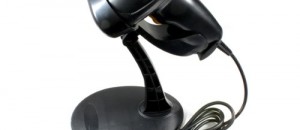With SOPA and PIPA out of the way, what other magic tricks does the entertainment industry of America have up its sleeve? How about having ISPs (Internet Service Providers — your Internet company) play copyright cop. Last year in July major ISPs across the USA agreed to ramp up efforts to clamp down on piracy. Since that time, we really haven’t heard much more about this copyright policing. Now, a few days ago the CEO of RIAA (Recording Industry Association of America) announced major ISPs in the USA (Comcast, Cablevision, Verizon, Time Warner Cable, etc.) have agreed to start monitoring what their customers download starting July 1, 2012.
Copyright Cop
Under the agreement signed by the ISPs and RIAA/MPAA, ISPs adopt what is called a “graduated response” to piracy (i.e. illegal download of intellectual property such as movies). Customers who are accused of file sharing will initially get one or two “Copyright Alerts” informing them of their infringements and asking them to stop. If, after sending these alerts, the customers in question still continue to pirate they will receive “confirmation notices” which ask consumers to confirm they got the Copyright Alerts. If customers continue to pirate, ISPs can choose between a variety of tougher measures (dubbed “mitigation measures”) such as throttling Internet speed or restricting Internet access until the customer stops pirating.
The RIAA/MPAA wants ISPs to build database which keep track of customers so they can flag the number of times a customer has been accused of illegal downloading.
This agreement between ISPs and RIAA/MPAA has been years in the making and has received political support, particularly from the White House.
Why This Is Important
This is important simply because all your Internet access and activity is seen by your ISP. If they wanted to, they could very easily tell you what you did on the Internet on what day, e.g. you visit X website at X time on X day. Thus, this is probably the most significant and effective step taking to date to fight piracy.
It isn’t important that ISPs are monitoring and logging their customers’ Internet activity; ISPs have been doing that for a while for stuff like cooperating with law enforcement. What is important is ISPs are now doing this to assist corporate America — not law enforcement. Where is the check that prevents abuse?
Issues With This Plan
The biggest issue with this plan, in my opinion, is how ISPs will determine who is downloading and if that downloading is legit or not. Now don’t get me wrong. ISPs have extremely intelligent engineers who have tricks to figure out what is being downloaded by who. What concerns me, however, is when ISPs get it wrong, i.e. false accusations. Also, what about shared networks? Is it OK to punish multiple users just because one person on the network is downloading something they shouldn’t?
The other major issue with this plan are privacy concerns. As mentioned above, ISPs have always had the ability to monitor Internet usage because they have had to comply with law enforcement requests. However, that was for law enforcement; not for the RIAA/MPAA. Law enforcement requests usually require probable cause and the approval of a judge through a warrant. What gives the entertainment industry of America the right to bypass these basic American rights? Where does the monitoring begin? Where does it stop? Are ISPs allowed to share data on people with other ISPs?
What about censorship. Isn’t throttling someones Internet access a form of censorship? This is the same Internet access that has been dubbed a “human right” by some organizations around the globe.
Finally, what happens if a customer refuses to stop downloading? Are they taken to court? Fined? Sued? Do consumers have a say in the matter? What can they be liable for?
The Bright Side
Not all is gloomy. ISPs have the choice of waving mitigation measures for individual customers, if they so decide; and none of the ISPs have agreed to permanently shutdown subscribers. Furthermore, I can see less lawsuits being thrown at consumers simply because people can argue in court the entertainment industry had tools to stop the pirating but they didn’t so they can’t hold people accountable. Finally, there are bound to be services and software that crop up to beat the system, for those that are really bothered by this.
Conclusion
This just feels dirty. The potential for abuse is high and privacy is bound to be trampled upon. I’m no lawyer but this feels like a violation of rights us American take as for granted. Only time will tell how this plays out. Here is hoping for the best.
Let us know what you think about this plan to monitor people’s downloads in the comments below.
[via CNET]

 Email article
Email article



